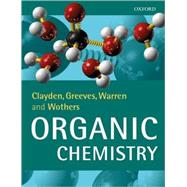
This text is different from these in a number of important ways: The approach is based on explanation rather than fact. The functional group approach (alkane, alkene, alkyne) has served American State College readers well but increasingly students and instructors are attracted more to an approach based on mechanism and reaction type. This approach aims at understanding rather than factual knowledge and, though slower at the start, eventually gives the student power to understand compounds and reactions never previously encountered. This is a big advantage in a science already too large for individuals to learn and which is annually expanding at an ever greater rate. The basics of the subject are explained carefully and thoroughly. How to draw molecules realistically and how to draw mechanisms to reveal the fundamental chemistry are both emphasised. Important points are revisited when they become relevant in later chapters. Examples are very important too. New examples are given each time a concept resurfaces, and examples from everyday life and medicinal chemistry are frequently used. The authors want the readers to be excited by the universality of organic chemistry rather than be overwhelmed by facts. The design of the book has features to help comprehension. Structures are drawn in red, and black is used on them for emphasis. Other colours are used flexibly to draw attention to atoms, molecules, orbitals, arrows or whatever the authors want to emphasise rather than being used in a rigid systematic way. There are four types of box used to separate material from the main text, ranging from extra important summaries to diversions which can be omitted at first reading. The early chemistry chapters feature carbonyl group reactions because addition to carbonyl groups is probably the easiest reaction to understand. Thereafter the chemistry develops in a logical sequence but chapters on spectroscopy, stereochemistry etc are interspersed among those dealing with chemical reactions. From time to time review chapters summarise what has been described in a particular area. A personal and honest approach is adopted. The authors write clearly and directly to the reader, sharing their enthusiasms, understandings and doubts. If they believe an explanation is imperfect or controversial, they say so. They show that organic chemistry is developing rapidly, and that new ideas continually emerge to replace the old. The authors know from experience what conceptual difficulties often overwhelm students at an early stage in their studies and they devote more space to these points, give more examples, and revisit them when they can be applied. The aim is to help the readers master these points for themselves rather than just learn them off by heart.
|